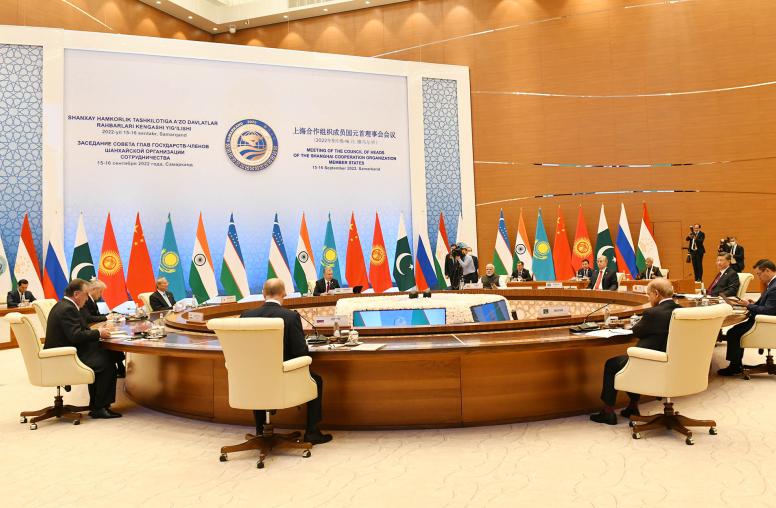Working in partnership with the Uzbek Business Women's Association (BWA), USIP brought together female entrepreneurs from throughout Uzbekistan for a three-day workshop. The workshop's main goal was to provide training in negotiation and problem solving skills for women involved in private business ventures.
Working in partnership with the Uzbek Business Women's Association (BWA), USIP brought together female entrepreneurs from throughout Uzbekistan for a three-day workshop. The workshop's main goal was to provide training in negotiation and problem solving skills for women involved in private business ventures. It was intended to help the participants become more effective agents for the development of a vibrant private sector and civil society in Uzbekistan. The participants included some of Uzbekistan's leading women entrepreneurs, who played pioneering roles in the development of the private sector following the collapse of the Soviet Union. Therefore, they already possessed many business management skills. Yet they knew less about how to use negotiation and problem solving skills to achieve their broader objectives, which included reforming restrictive business legislation and overcoming traditional obstacles to women's economic and political empowerment. The USIP program aimed to build participants' negotiation and problem solving capacities, helping them develop new approaches and greater confidence in their relations with representatives of government, banks, and other businesses.
The training was tailored to the specific needs of the audience. It included a variety of interactive exercises, group problem solving sessions, and simulations which focused on negotiation, communication, and coalition building skills. For example, participants built skills through participating in a multi-role negotiation exercise, "The city and the factory," which was written for this training. Featuring business, civic, and political actors, and a scenario typical of community-level economic conflicts in Central Asia, "The city and the factory" was designed to engage participants in an exercise relevant to their own experiences and challenges.
The practical focus of the workshop was widely praised by participants, who emphasized that the skills they developed would be directly relevant to their business and political activities. For example, they felt that the negotiation and problem solving skills would be useful in dealing with the conflicts they experience in their business dealings and in their interactions with local and national government officials. Particularly valuable, according to participants, would be the insights they gained regarding how to seek mutual interests when positions appear incompatible. Several participants also stressed that they would share the exercises and lessons learned during the workshop with their colleagues and staff, thereby spreading the workshop´s impact to a broader audience.



